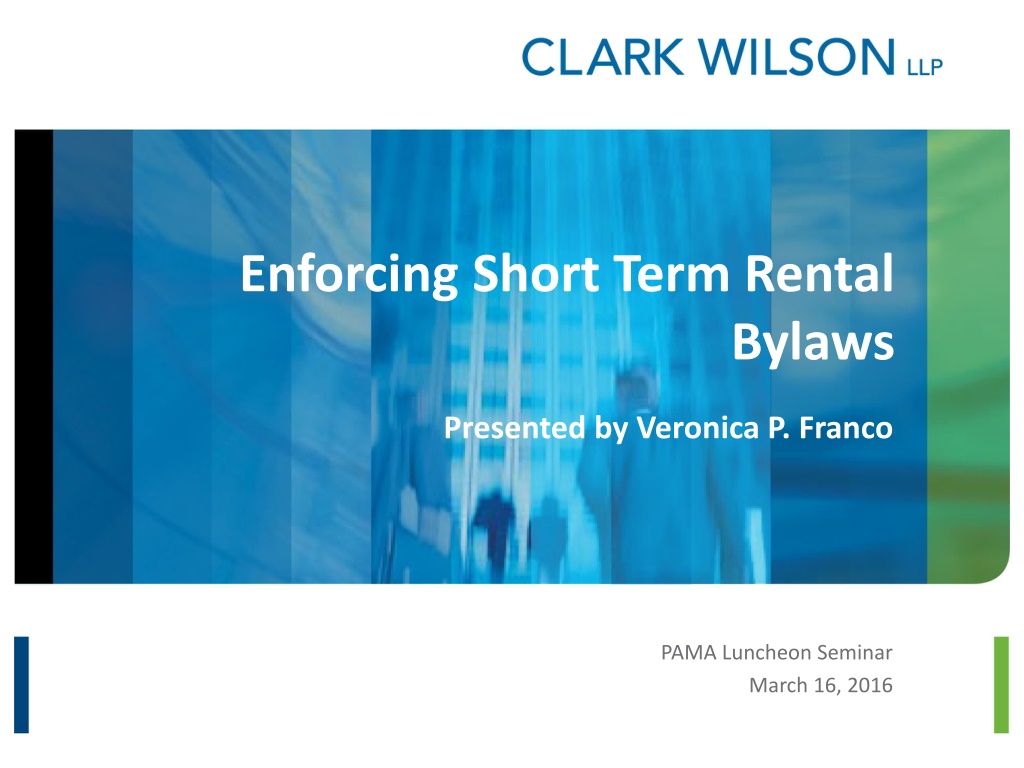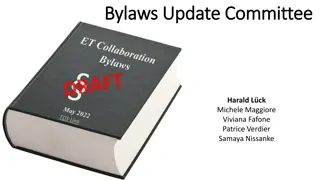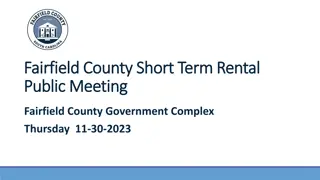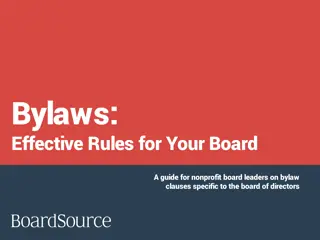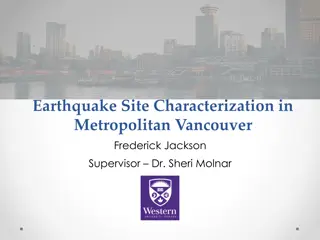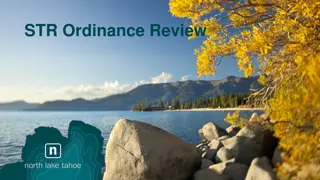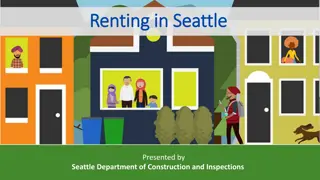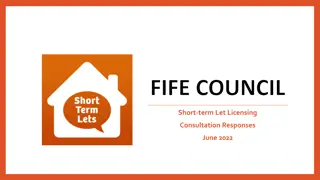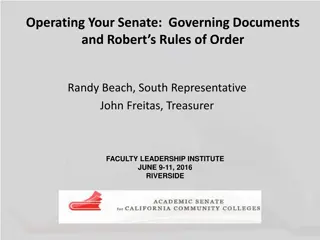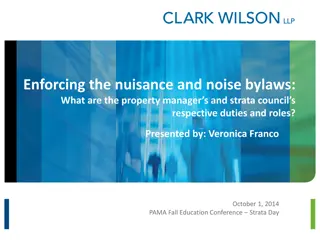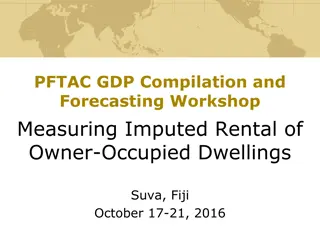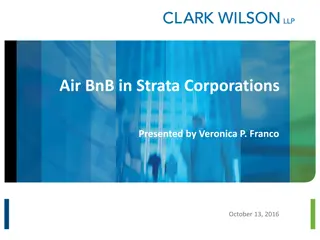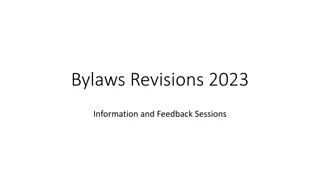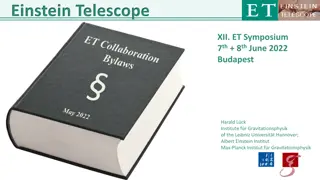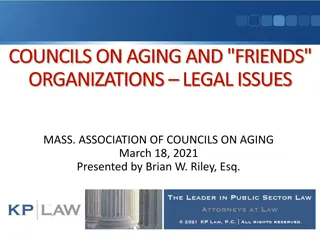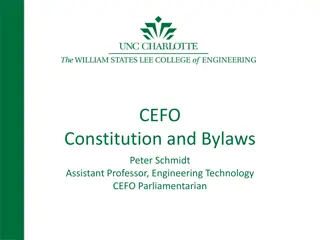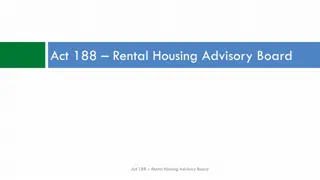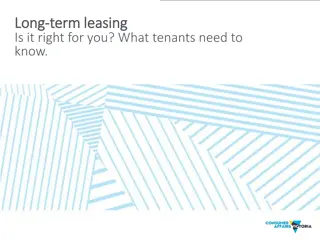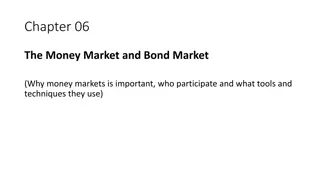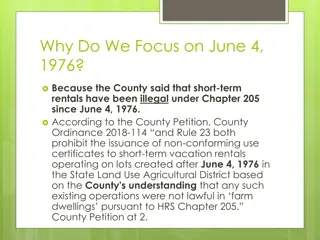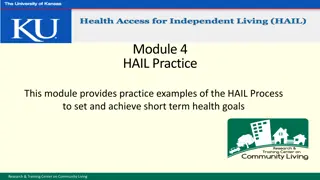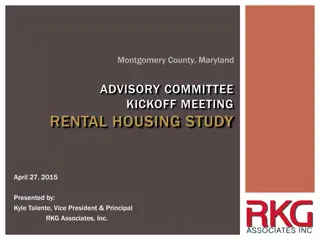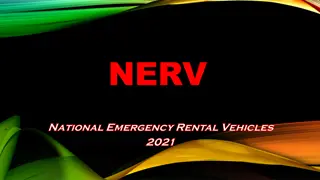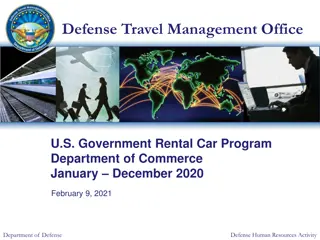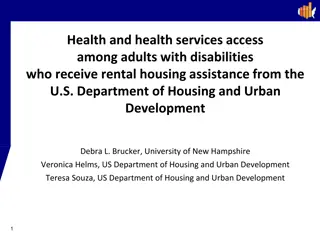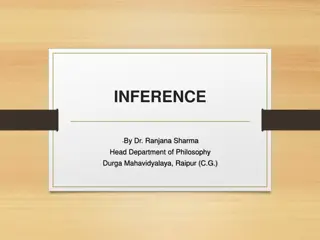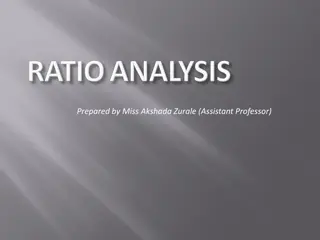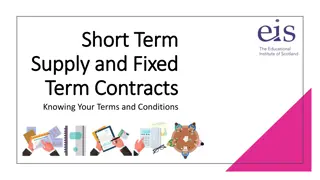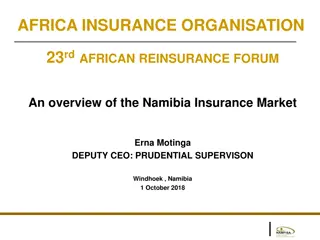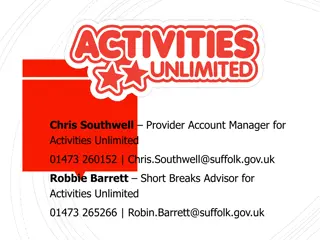Understanding Short Term Rental Bylaws in Vancouver
Explore the regulations governing short term rentals in Vancouver, including permitted uses, enforcement challenges, and the city's response to the growing trend. Learn about different types of short term rentals and key considerations for property owners.
Download Presentation

Please find below an Image/Link to download the presentation.
The content on the website is provided AS IS for your information and personal use only. It may not be sold, licensed, or shared on other websites without obtaining consent from the author. Download presentation by click this link. If you encounter any issues during the download, it is possible that the publisher has removed the file from their server.
E N D
Presentation Transcript
Enforcing Short Term Rental Bylaws Presented by Veronica P. Franco PAMA Luncheon Seminar March 16, 2016
What are we talking about? Short Term Rentals! Many shapes and sizes: Craigslist Air Bnb, VRBO, Homeaway, Roomorama, Make Yourself At Home, Mode Suites direct owner rentals Companies that rent out furnished units such as High Street Accommodations (www.hscr.com) 2
Types of Short Term Rentals Corporate housing Extended vacation rental Vacation rentals Relocation rentals 3
Permitted Use? City of Vancouver Zoning and Development Bylaw Section 10.21.6 No person shall use or permit to be used any dwelling unit for a period of less than one month unless such unit forms part of a hotel or is used for bed and breakfast accommodation. Dwelling unit = self-contained housekeeping unit 4
Permitted Use? Hotel = premises providing temporary accommodation by way of furnished sleeping, housekeeping or dwelling units, but does not include Bed and Breakfast Accommodation Bed and Breakfast Accommodation = the use of one or two bedrooms in a dwelling unit as temporary accommodation where the room rate includes breakfast provided on the premises 5
Permitted Use? Section 10.20.5 No person shall use or permit to be used any housekeeping unit for a period of less than one month unless such unit forms part of a hotel. Housekeeping Unit = a sleeping unit containing facilities for cooking; Sleeping Unit = one or more rooms equipped to be used for sleeping and sitting purposes; 6
Municipal Bylaw Enforcement Airbnb search yields over a thousand accommodations in Vancouver, BC Resources to enforce would need to be significant. Anecdotally, no real or significant enforcement now. 7
City of Vancouvers Response From the city s perspective, we haven t had the complaints to really take issue with it, but from the affordability and the vacancy rate issue we obviously need to recognize what the impact is, said Mukhtar Lati, the City of Vancouver s chief housing officer. In 2014, the City of Vancouver received fewer than 10 complaints. 8
The Statistics 71 per cent of Vancouver Airbnb listings are for entire homes. 66 per cent of Metro Vancouver Airbnb listings are for entire homes. A significant chunk of the rental stock is lost. In downtown Vancouver, the ratio of AirBnb to traditional rentals is 10 to 1. 9
Permitted Use at the Strata Corporation Level Bylaws: Standard Bylaw 3(1) An owner, tenant, occupant or visitor must not use a strata lot in a way that is (d) illegal; or (e) Contrary to a purpose for which the strata lot or common property is intended as shown expressly or by implication on or by the strata plan 10
Permitted Use at the Strata Corporation Level (contd) Bylaws: Common rental bylaw (but not standard) The minimum period of time a strata lot must be rented is one month/six months/one year (you pick). 11
Permitted Use at the Strata Corporation Level (contd) Bylaws that prohibit the use of a strata lot for short term accommodation purposes or to grant licenses. 12
Permitted Use at the Strata Corporation Level (contd) The Owners, Strata Plan VR 2213 v. Duncan & Owen, 2010 BCPC 123 Owners, Duncan and Owen, rented unit to their company Dunowen Properties Ltd. Dunowen Properties Ltd. then rented the units out. Strata Corporation demanded Form K and move in fees for each new tenant . Dunowen denied tenancy. 13
Permitted Use at the Strata Corporation Level (contd) The Owners, Strata Plan VR 2213 v. Duncan & Owen, 2010 BCPC 123 Court said: Not a tenancy! They are occupants not tenants. 14
Common Law definitions Lease = grant of exclusive possession over property. It creates an interest in land License = permission to use or do something on property without having an interest in land and usually revocable at will and not assignable. 15
Options for Strata Corporations Bylaw Enforcement How do we enforce these bylaws? What other bylaws might apply? What steps are required? What evidence do I need to prove a bylaw contravention? What if the Rental Disclosure Statement makes rental restriction bylaws unenforceable? We passed the short term rental ban bylaw two weeks ago, when is it enforceable? What other steps can be taken to deal with short term rentals? 16
Options for Strata Corporations Bylaw Enforcement Enforcement options 129 (1) To enforce a bylaw or rule the strata corporation may do one or more of the following: (a) impose a fine under section 130; (b) remedy a contravention under section 133 17
Options for Strata Corporations Bylaw Enforcement Strata corporation may remedy a contravention 133 (1) The strata corporation may do what is reasonably necessary to remedy a contravention of its bylaws or rules, including (a) doing work on or to a strata lot, the common property or common assets, and, (b) removing objects from the common property or common assets. (2) The strata corporation may require that the reasonable costs of remedying the contravention be paid by the person who may be fined for the contravention under section 130. 18
Options for Strata Corporations Bylaw Enforcement Eviction by landlord 137 A repeated or continuing contravention of a reasonable and significant bylaw or rule by a tenant of a residential strata lot is an event that allows the landlord to give the tenant a notice terminating the tenancy agreement under section 47 [landlord's notice: cause] of the Residential Tenancy Act. 19
Options for Strata Corporations Bylaw Enforcement Eviction by strata corporation 138 (1) A repeated or continuing contravention of a reasonable and significant bylaw or rule by a tenant of a residential strata lot that seriously interferes with another person's use and enjoyment of a strata lot, the common property or the common assets is an event that allows the strata corporation to give the tenant a notice terminating the tenancy agreement under section 47 [landlord's notice: cause] of the Residential Tenancy Act. 20
Section 137 and 138 Evictions Only available if: Tenant is using the strata lot to provide short term rentals; Landlord/owner wants to stop; If strata corporation evicts under s. 138, the tenant willingly accepts the eviction or the landlord/owner agrees to the eviction and participates to support the strata corporation in any hearing to set aside the eviction notice. 21
Section 135 and Levying Fines What fines apply? If proceeding under a use bylaw (illegal, contrary to purpose, don t use strata lot for short term accommodations or grant licenses), the maximum fine is $200 provided the bylaws allow for the maximum. If proceeding under a rental bylaw (exceeds the maximum rental period), the maximum fine is $500 provided the bylaws allow for the maximum. 22
Section 135 and Fines 4 Step Process: 1. Strata Corporation receives a complaint. 2. Strata Corporation delivers notice of the complaint to the relevant parties; 3. Strata Council meets to decide if the bylaws are contravened, which bylaw was contravened, whether to levy a fine, and if so, how much. 4. Strata Corporation delivers notice of the decision to fine or not fine. 23
Section 135 and Fines Receiving the Complaint No statutory requirement that complaint be in writing; Step 2 requires giving notice of the complaint, including particulars If the complaint is not particularized, now is the time to respond to complainant to ask for particulars. 24
Section 135 and Fines Receiving the Complaint Ex. 1: My next door neighbour is using their unit for short term rentals. Ex. 2: I think the unit next door (201) has short term rentals. Yesterday, at about 3 pm, I helped a couple find unit 201. As we were talking in the elevator, they told me that they are visiting from England and were so excited that they found this unit to rent on VRBO. Last Saturday at about 1 pm, I saw the owner meeting with a different couple in the lobby. I say the husband hand over the key. I overheard them thanking the owner and promising them a great review. They had luggage with them. 25
Section 135 and Fines Delivering Notice of the Complaint Use correct address for delivering notices (s.61); Include full particulars of the complaint; Set out possible bylaws that may have been contravened; Set out maximum fines that could be levied if the council determines the bylaws have been contravened; Provide a deadline to respond in writing or request a hearing or the date of the next council meeting; Direct notice to the tenant, if the tenant has contravened the bylaws and send copy to landlord/owner (s.130) 26
Section 135 and Fines Council Meeting After deadline passes and/or hearing is held, the council must meet to decide whether any of the bylaws have been contravened, and if so, whether to fine and how much. Why meet? All council decisions must be decided by majority vote of the council at a council meeting to be valid and enforceable. The portion of the meeting where the council discusses and votes can be in camera assuming the SB apply; The minutes of the council meeting must set out the decision. 27
Section 135 and Fines Delivering Notice of the Outcome Step 4: A final letter must be sent to let the owner know: 1. Whether the council found the owner in contravention of the bylaws and if so, which bylaws; 2. If the owner did contravene the bylaws, whether the council has decided to: (a) give a warning; (b) levy a fine, and if so, how much. 28
Issues to Consider Continuing contravention? Depends on which bylaw and whether the breach is non-stop. Ex. Use bylaws to be continuous, the unit must be used for short term rentals non-stop. If there is a gap between guests, it has stopped and a new fining process must be adopted. 29
Issues to Consider To be able to levy fines every 7 days, some strata corporations now ban advertising their unit on short term rental websites. As long as it is continuously advertised, a fine can be levied every 7 days. Note that advertising prohibitions only apply to use bylaws. You cannot ban or limit advertising on websites for traditional rentals. 30
What Evidence is required? In court, standard of proof is balance of probabilities = Based on the evidence, there is more than a 50% chance that the allegations are correct You don t have to catch a person red-handed; He said-she said is acceptable it s a question of credibility 31
Evidence Continuous advertising on websites; Websites show consistent bookings; Concierge or other owners note several instances where people with luggage arriving to a particular unit; Guests admit to renting it for a short period; Over a short period of time, the number of guests coming and going is significant and cannot credibly be explained by owner s claim that these people are just friends that the owner allows to stay in the unit for free. 32
When Levying Fines is not Enough Small Claims Court to collect the fines; Supreme Court to obtain an injunction. CRT as a possible solution 33
When is the Bylaw Effective? Rental bylaw s. 143 (1)) one year after bylaw is passed or one year after tenant who is occupying unit at the time the bylaw is passed stops occupying the unit; Use Bylaws No grace period, but section 164 might apply to protect bookings, particularly those where cancellation fees might apply. 34
Other Steps to Deal With Short Term Rentals 1. Are short term rentals causing a problem? 2. If so, what are the problems, and what other bylaws might assist? Eg. Better noise bylaws 3. If not, perhaps it is time to bring the underground market above ground: Limit numbers; Refundable Deposits; User fees to cover administration, insurance costs; Regulate key fobs limit number/what they open Limit use of recreational facilities? 35
Conclusion Encourage owners and council members to report all short term rental issues to the applicable municipality; Obtain proper particulars to assist in levy8ing fines; Comply with all 4 steps of s.135 Consider court proceedings if fines are not working Are new bylaws necessary? 36
These materials are necessarily of a general nature and do not take into consideration any specific matter, client or fact pattern. Please direct inquiries or comments to: Veronica P. Franco vpf@cwilson.com 604-891-7714 www.cwilson.com THANK YOU
